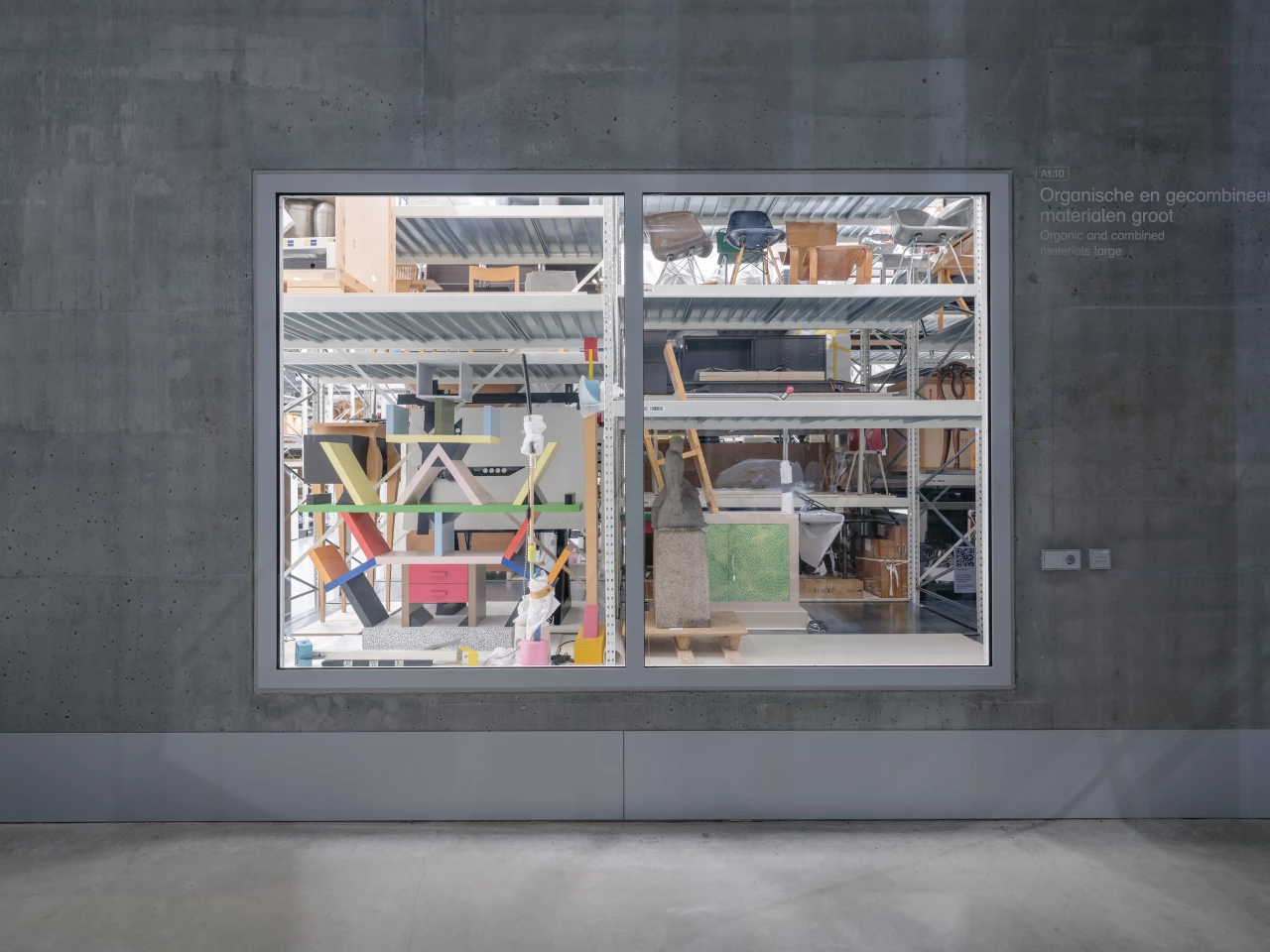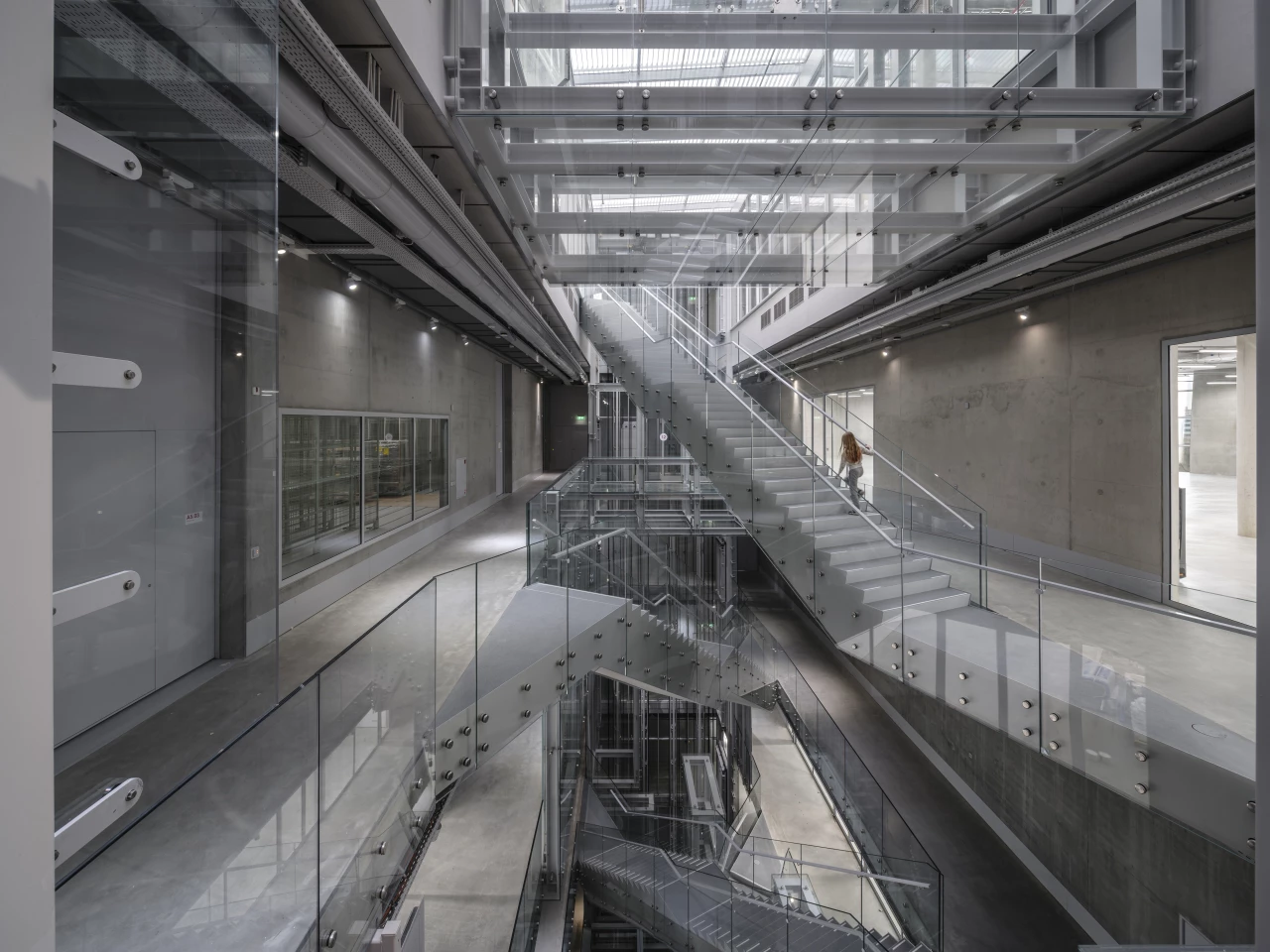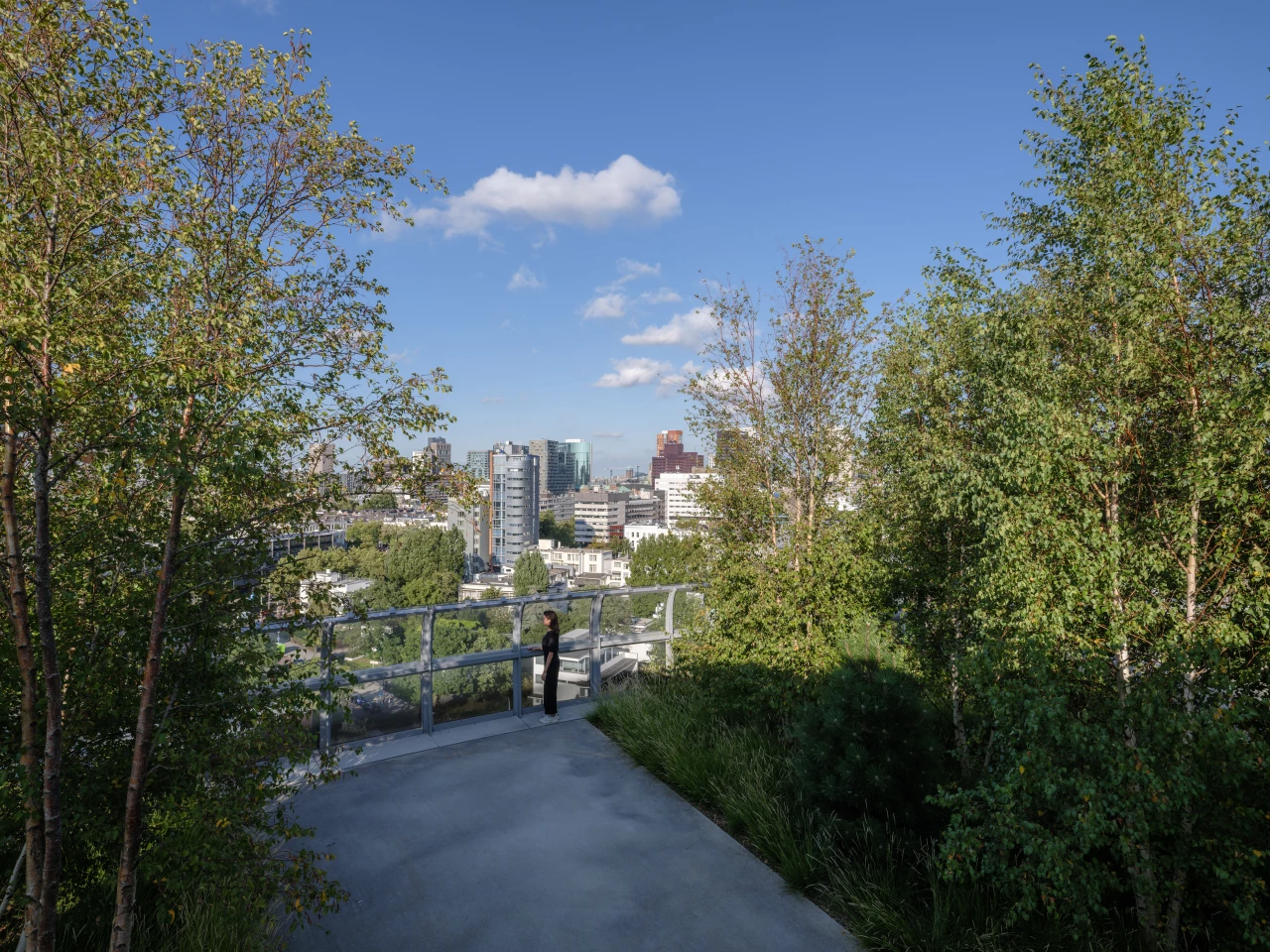MVRDV's Depot Boijmans Van Beuningen is one of the eclectic firm's most striking projects to date. Resembling an oversized mirrored mixing bowl, the building is described by the firm as the world's first publicly accessible art depot and offers visitors a glimpse into the secretive world of art preservation and restoration.
Located in Rotterdam, the Netherlands, Depot Boijmans Van Beuningen came about because the country's Museum Boijmans Van Beuningen is undergoing a renovation by Mecanoo and will be closed until 2028. With this depot now completed, the museum's entire collection of 63,000 paintings, photographs, films, design objects, contemporary art installations and sculptures, as well as 88,000 prints and drawings, will be protected and on display. As visitors travel through the building they can view the art and even see experts busily going about their work restoring, repackaging and transporting it.

"The Depot Boijmans Van Beuningen is the first publicly accessible art storage facility in the world," says MVRDV. "The brief was to design a building that would be as inviting as possible, where all different target groups would feel welcome. It was emphatically not to become a second museum, where only a small percentage of the collection can be exhibited, but an engine room that reveals the world behind the storage and maintenance of a dazzling number of art and design works. Visiting the depot offers a completely new experience: the art is arranged according to size and climate requirements, not art history periods. Old and contemporary works are juxtaposed, inviting new connections to be made.
"The depot owes its shape to the desire to give the building a relatively small footprint. As a result, the building takes up less space in the park, but curves upwards with a 10 m [32 ft] overhang to accommodate the entire program – storage spaces, restoration studios, catering facilities, and film and presentation rooms."

Depot Boijmans Van Beuningen reaches a height of 35 m (115 ft) and is defined by an eye-catching facade comprising 6,609 sq m (roughly 71,000 sq ft) of mirrored glass, which is divided into 1,664 panels. The interior measures 15,541 sq m (167,000 sq ft) and is arranged around a large atrium with criss-crossing staircases and glazing offering glimpses at the art inside.
The building is topped by a small public park area (this can be reached separately without paying for a ticket to the depot) consisting of 75 birch trees, 20 pines, and various species of grass. Obviously wind is an issue at that height, so MVRDV installed a windbreak and a cross-shaped restaurant to reduce wind loads, and says this will be sufficient to ensure the trees withstand severe weather.
Additionally, the depot has some sustainability features, including solar panels on the roof to reduce its grid-based electricity usage, an efficient geothermal heat exchanger-based heating system, and a rainwater collection system that irrigates the rooftop park and provides water to flush the toilets.

Depot Boijmans Van Beuningen has been in the works for a long time. It was first commissioned in 2013 and began construction in 2017. It now finally opens to the public on November 6, though extensive landscaping of the surrounding area is still ongoing and, once this finishes in 2022, will add events areas, ponds, and hundreds of new trees.
Source: MVRDV

















